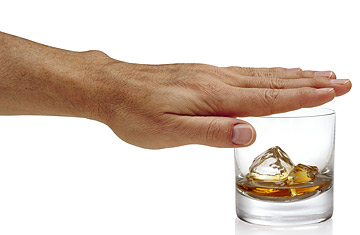
Correction Appended: July 31, 2009
They call it "the switch." Alcoholics who take an anticraving medication called baclofen say the drug allows them to resist the most powerful triggers of relapse: former drinking buddies, a favorite bar, the sight of alcohol or even the most potent drinking cue of all, having a single drink.
Bob, 62, a business owner in the Midwest, who asked not to be identified by his real name, experienced his switch at a dinner party two years ago. Bob had battled alcohol dependency for several decades, regularly drinking at least 35 beers a week. Normally he would have downed several glasses of wine before dinner, he says, but that night, after taking baclofen for two weeks, he found himself sipping soda water instead, engrossed in conversation. "I realized I wasn't having that nagging feeling in my head, 'I should really get a drink,'" says Bob. "It never appeared during the dinner either so that was the eureka moment." He continues to take baclofen and now drinks about two or three times per week, no more than a beer or two at a time.
A similar experience prompted French cardiologist Dr. Olivier Ameisen to write the highly publicized memoir The End of My Addiction (Farrar, Straus and Giroux, 2009). A longtime alcoholic, Ameisen had checked into various rehabilitation centers at least eight times and attended nearly 5,000 Alcoholics Anonymous (AA) meetings, without being able to maintain sobriety. More than five years ago, he began taking baclofen, and since then, he says, he has consistently been able to abstain from drinking altogether or drink moderately in social situations, without having cravings or other addiction-related problems.
"I never understood how people could leave liquor in a glass," says Ameisen, "Now you could give me a sip of champagne and I could leave it. That was impossible in my wildest dreams. And it's effortless. Complete suppression, not reduction of cravings. I'm indifferent to it."
Despite such anecdotal successes, so far there is little scientific data in humans to support them. Past studies in animals suggest that baclofen does have a powerful anticraving effect, however, and two large, randomized controlled trials of high doses of baclofen are under way. Meanwhile, more and more American doctors are prescribing baclofen for their alcoholic patients, based on experiences like Ameisen's. And yet even if the apparent anti-addiction benefits of the drug — which is currently approved by the government to treat muscle spasms — are borne out in human trials, it might do little to persuade most American addiction-treatment providers to use it.
At issue is the definition of treatment. In the U.S., successful treatment of addiction has traditionally been an all-or-nothing undertaking, involving complete abstinence — as promulgated by supporters of 12-step programs like AA — rather than a regimen of moderation. For many, that definition includes abstinence even from drugs that would help fight cravings. Indeed, for decades, experts have debated whether drug addicts who cannot or will not quit should even be offered ongoing treatments that would reduce harm related to their drug abuse. Although many providers have recently become more open to new options, the majority of American addiction treatment continues to use the 12-step abstinence model.
But in many other countries harm reduction is a widely accepted treatment model. In Europe and Canada, government-funded antiaddiction programs routinely help alcoholic patients reduce drinking, even if they won't quit; in Sweden, health officials suggest that cigarette smokers switch to snus (smokeless tobacco), which, unlike smoking, is not associated with lung cancer or cardiovascular disease. American proponents of moderation also argue that by demanding complete sobriety, it is possible that we are missing the chance to improve the health of smokers or problem drinkers who cannot or are not ready to stop entirely.
Download the new TIME BlackBerry App at app.time.com.
